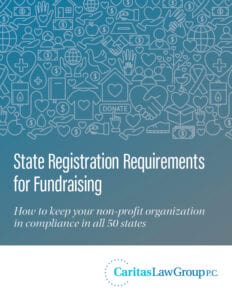LINKS
The links on this page are resources for nonprofit organizations in Arizona, as well as various federal references for tax-exempt orgs.
Student Guide to Resumes for Nonprofit Jobs and Careers
Guides
Free Guides for your Nonprofit Organization


There are many legal issues specific to nonprofit organizations that can be easily prevented by taking certain steps early on in the life of the organization. For more established nonprofits, it’s a good idea to conduct a periodic review of your compliance documents, tax filings, and record keeping. We created this checklist to help you understand the items that a lawyer will assess when reviewing the overall legal health of your nonprofit organization.
Meeting minutes are a necessary form of record-keeping for all nonprofit organizations, regardless of size. These records can be used as legal evidence by the courts, IRS, and other regulators, so it’s important to ensure minutes are properly completed and stored. But where do you start?
Executives from tax-exempt organizations can only be paid “reasonable compensation” for their services.
To avoid excise taxes, nonprofits should strongly consider increasing the time and attention they devote to investigating, deliberating, documenting, and reporting executive compensation.
CharityLawyer Blog offers plain language explanations of complex nonprofit law concepts, discussions of current events and links to valuable resources for nonprofits.
"*" indicates required fields
FEATURED BLOG POSTS
- The Voldemort Protocol Problem
Anonymity in philanthropy is not unusual. Many donors prefer privacy. Sometimes it is humility. Sometimes it is security. Sometimes it is simply temperament. But sometimes anonymity is not about the donor at all. When Anonymous Gifts Signal a Governance Failure The reporting surrounding MIT’s acceptance of funds from Jeffrey Epstein illustrates a different governance problem.
- The Pledge Is Not the Gift: What Foundation Boards Should Learn from Harvard and MIT
Foundation boards like to celebrate large pledges. They validate strategy. They signal momentum. They make annual reports look good. But the Jeffrey Epstein university scandals, documented by MIT’s own independent report and covered extensively by TIME, AP News, and others, demonstrate something boards often forget: The pledge itself can be the product. When the promise becomes leverage MIT publicly
- When Funding Disappears or the Model Breaks: Converting to 501(c)(3) status
Recent nonprofit news highlights a trend that many lawyers are seeing more frequently in practice. Programs lose government funding. Mission-driven for-profit ventures struggle to sustain themselves financially. In response, organizations begin to ask whether operating as a tax-exempt charity might be a better fit for their work. Examples in the news include government-adjacent programs relaunching


